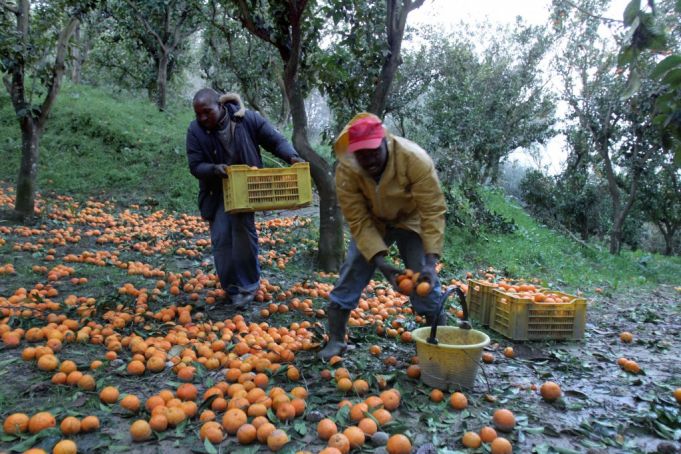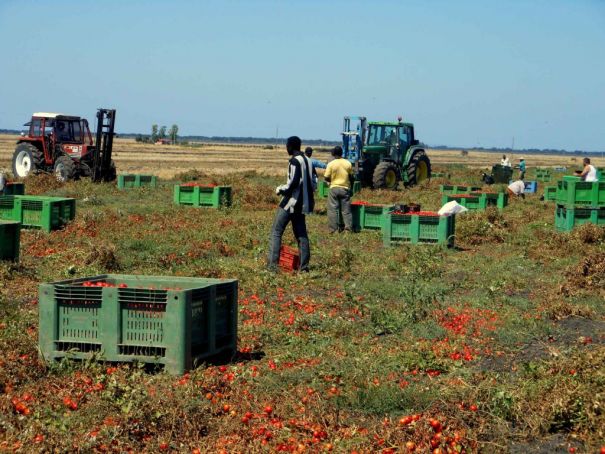The dark secrets of Italian kitchens
Most restaurant customers are unaware of the human cost of their meals.
By Mike Dilien.
Rome. An evening breeze gently caresses your face after a suffocating day among the monuments. The street cobbles have dissipated the day’s heat and now shine under the glow of dim lights. Every bar and restaurant is buzzing with people. “Buonasera,” says a smiling waiter from a wooden terrace. You recognise the restaurant from a review that praised its “delicious regional delicacies” prepared with “carefully selected ingredients.” Why not give it a try?
The waiter guides you to a small table in the corner. At the back of the room, seated at joined tables, a group of British retirees recounts the events of the day. In front of you, a French family is discussing the menu: while the parents consider having starters, the children prefer jumping straight to the main course. Next to your table, an American couple orders pizza.
The waiter returns and hands over the menu. You ask him what he recommends for starters.
“Spaghetti con pomodori di S. Marzano,” he says.
A dish with tomatoes sounds good. After all, you are in Italy and the tomato is almost a national symbol, isn’t it? You ask where this type of tomato grows.
“The S. Marzano are from Foggia,” he explains. “They have been hand-picked.”
While you are waiting for your food, you study the cheerful map of Italy that hangs beside you. You eye the south: Sicily, Calabria, Basilicata, Campania and Puglia. You spot the city of Foggia.
According to a Danish report, 18,000 of the 400,000 immigrants who are working illegally in Italy’s agriculture head for Foggia every summer. After the tomato harvest, they pick water-melons or move to Sicily to pick grapes. Most of them pass the winter in Calabria picking citrus fruits.1

The restaurant breathes a bucolic atmosphere: high arches evoke a barn, niches in the bare walls display copper bowls and plates, and demijohn bottles and country-style tablecloths decorate rustic wooden tables.
The immigrant workers live crammed in derelict and abandoned buildings without electricity, running water or sanitation.
The dish is exquisite. The tomato slices are tickling your palate and the pasta mixes well with the juicy S. Marzano.
When Médecins Sans Frontières (MSF) visited the workers across the southern Italian regions of Calabria, Puglia, Campania, Basilicata and Sicily in 2004, they diagnosed 94.4 per cent as being chronically ill.2 The workers were suffering from respiratory infections, skin diseases, intestinal parasites and tuberculosis. On top of this, all the workers were undernourished. They earned up to €4 for every crate of 350kg they filled with tomatoes. Yet they had to pay middlemen five cents for every such crate, €5 for transportation per day and €50 a month in rent. The men who were picking food from 06.00-18.00 could afford but one meal a day.
A waitress takes your empty plate. You have a look at the menu: will you try the carciofi alla giudia or rather the zucchine ripiene di carne, both “recipes prepared with local ingredients”? The local ingredients are a well-guarded secret.
In Rome’s hinterland, known as the Agro Pontino, a community of 12,000 Indian Sikhs (Italy has the largest community of Sikhs in the EU after the UK) picks artichokes and courgettes. They have paid employers upfront €14,000 each for sponsoring an entry visa. Once in Italy, however, they do not receive a residence permit. Turned into illegal immigrants, they find themselves at the mercy of their employer and have to endure delayed or non-payment of wages. They work 10 to 12 hours a day. In order to keep up with the work pace, many of them turn to amphetamines or even hard drugs. Substance abuse, however, is taboo in the Sikh religion and is disrupting the community.
Officially, the Agro Pontino counts 10,000 workers for 11,000 companies, a figure that is too absurdly low to be true. A surplus of undocumented workers keeps downward pressure on wages. “The Italian government is well aware of what the employers do,” said a Sikh worker in an interview with Amnesty International, and explained: “We are a subsidy.”
All the fruit and vegetables on the menu have passed through the Centro Agroalimentare Roma in Guidonia, which was opened about ten years ago, replacing the old Mercati Generali in Ostiense. It is now Italy’s largest and Europe’s third-largest wholesale market. In this 140-hectare complex not far from Tivoli, Egyptian boys aged 11-17 work 10 hours a day for €20. Their families pay human traffickers up to €10,000 to take the boys to Italy. Upon arrival, the boys ask for asylum and are sheltered in subsidised host families. It takes them 18 years to pay off their debt.

You go to the bathroom. At one of the tables, a tourist uses her smartphone to take a picture of her plate –“my favourite food! #Italiandinner #Italianrestaurant.” Passing the kitchen, you peep through the half-open door: four Indo-Asian men or north Africans are preparing authentic Roman specialties.
When you get back at your table, the American couple is paying the bill. The man says to the waiter: “This doesn’t taste the same back home, you know. Here, everything just tastes better.”
Already four out of every 10 pizzaioli in Italy are immigrants. In 2013, 29.7 per cent of kitchen staff in Lazio’s restaurants were non-EU immigrants – Italian waiters are there to convince customers that they are experiencing the real thing.
“Any dessert, sir?” asks the waiter and hands you the menu. The restaurant is famous for its desserts, so you have read. You try their sorbetto: "Made with juice from three types of oranges, this sorbet wonderfully balances sweetness and smoothness. It has a refreshing aroma and is served in the orange rind."
When the waiter brings your dessert, you ask for the bill. It is getting late. Time to go home. In Termini station you will pass immigrants sleeping rough. Many of the Africans that are living on the streets of Rome or squatting in buildings in the outskirts of town have fled the Italian countryside. Some of them used to pick oranges in Rosarno, Calabria. In 2010, the town of Rosarno hosted about 5,000 immigrant workers. After locals shot at them the Africans rebelled – against employers who, on pay day, tip off the police to the workers’ whereabouts; against the disappearance of co-workers who criticised the working conditions; against forced sexual favours; against drive-by shootings and manhunts. The locals then hit back. After two days and nights of violence, the authorities transferred Rosarno’s immigrant workers to detention centres.
The waiter arrives with the bill. It is more than the entire kitchen staff makes in a day. On the late-night bus, you will be the only westerner amid exhausted kitchen staff returning to the suburbs.
Today an immigrant picker earns about a third of what his Italian peer earned 30 years ago but at the same time the price of tomatoes has tripled. Italy is now the world's largest exporter of canned tomatoes. By 2011 EU subsidies (which reached €6.1 billion in 2013) had turned 211 Italian farmers into millionaires, according to the farmsubsidy.openspending.org website.3
In 2012 the Fillea-CGIL trade union accused producers of tomatoes and water melons “made in Italy” of extortion and human trafficking. Food retailers in UK, Norway, Denmark and Germany have at last begun to scrutinise the business ethics of Italian suppliers.
The waiter swipes your credit card through the card reader.
“How was your meal, sir?”
“Very tasty,” you say.
“Yes,” says the waiter. “Our kitchen is based on simplicity, and treats each ingredient with respect.”
FOOTNOTES
1. From "Behind the Canned Tomatoes: Labour exploitation in the production of canned tomatoes sold in Danish supermarkets". Published by Danwatch, a non-profit research centre. Danwatch received funds from Amnesty International for this investigation.
2. Published by MSF in “The Fruits of Hypocrisy”
3. The site is maintained by a non-profit organisation in the UK and the Danish International Centre for Analytical Reporting.
This article was published in the August edition of Wanted in Rome magazine.



















